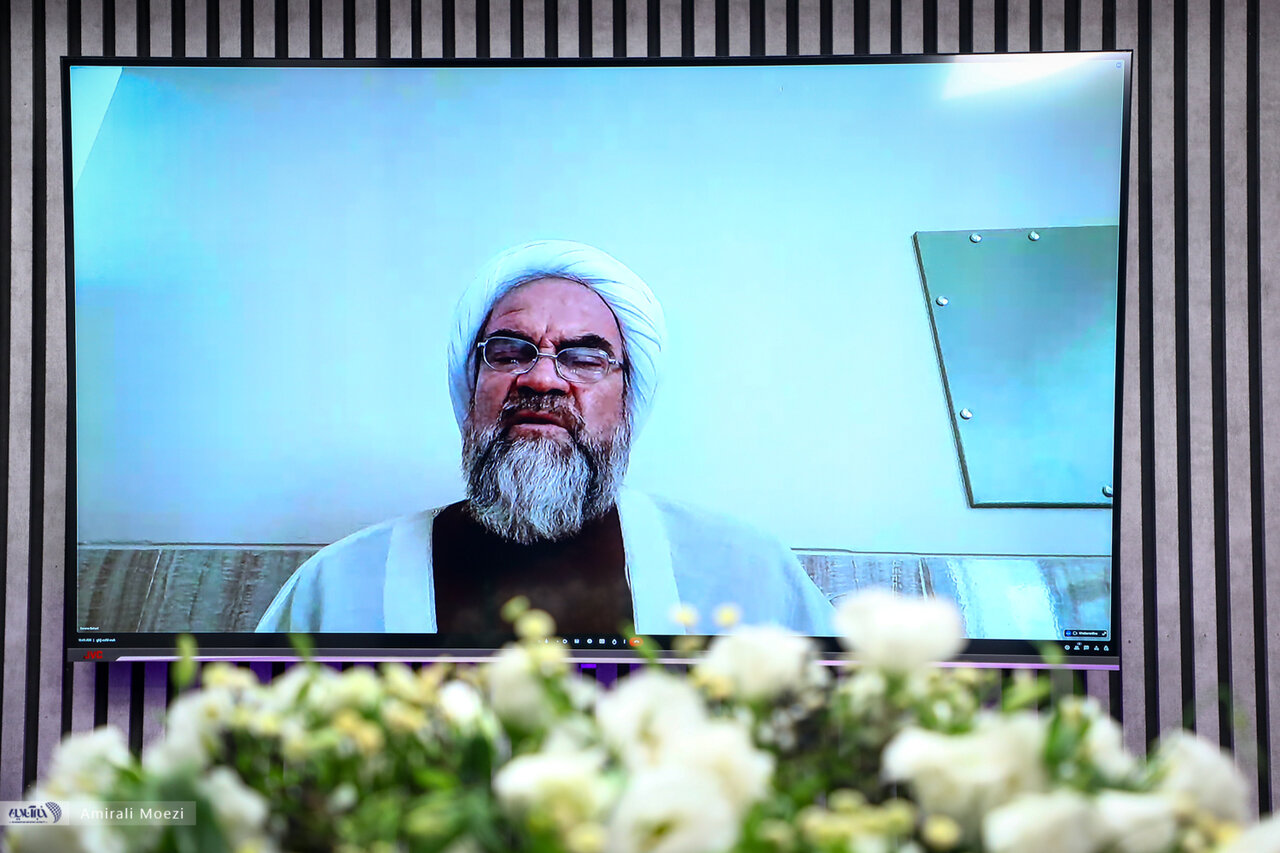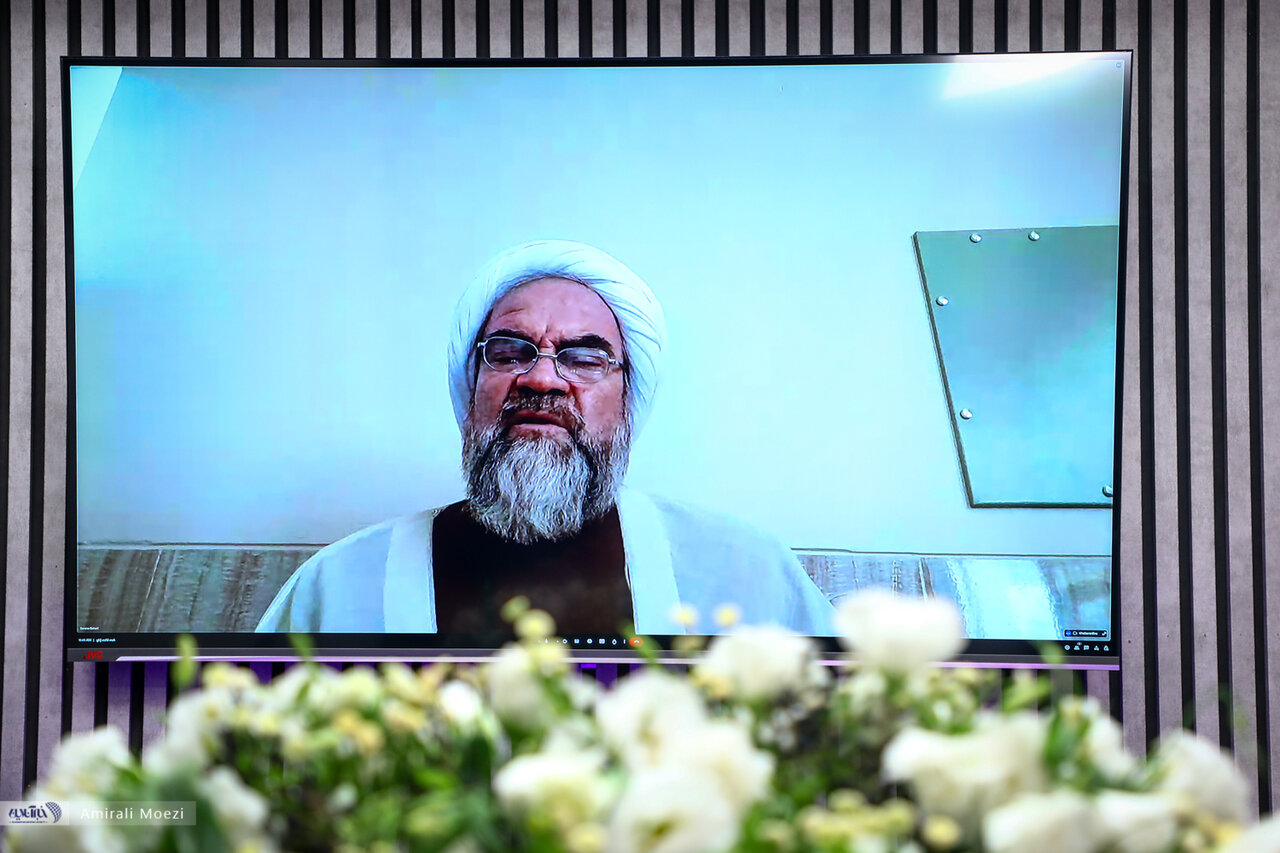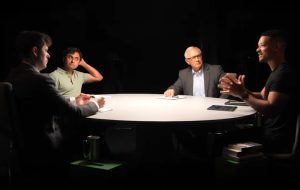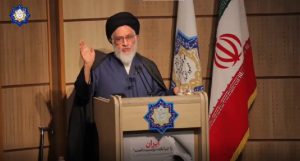
Group of Thought: Master Mohsen GharavianIn the conversation with the site Our thought has talked about the factors influencing religion or escaping in society. The words of Ghorvian show that religion in Iranian society is rooted in various factors. In the first stepThe Ghorisan points out that the root of religion is in human nature and that all religions are based on the belief in a common origin. However, the problem begins where religious commentators offer different perceptions of religion that may not be consistent with the needs of the day and the rationality of society. These perceptions often focus on the scary aspects of religion such as punishment, divine anger, and hell, while ignoring divine mercy and love. This kind of attitude, especially for young people, is not attractive and removes them from religion. Gharavian continues toAnother Amal Economic problems such as poverty and livelihood pressure also play an important role in religious escape. Ghorvian believes that these problems are more rooted in mismanagement and inaccurate policies than religion itself. When these problems are justified in the name of religion, people hate religion and even religion. For him The third factorIt is an educational system that relies on worship and conservation rather than nurturing rational and philosophical thinking. This approach derives the power of conscious choice from students, and as a result, when faced with different ideas, they cannot communicate an internal connection to religious teachings. Ultimately, over -focusing on the appearance of religion, such as the veil, while neglecting the deeper concept of chastity, also fosters this process. This dialogue is below:
****
Professor Mohsen Gharavian said about the factors influencing the religion or religion of society: The root of religion lies in the nature of all human beings. Religion is the manifestation of man’s relationship with the unseen world. All human beings are naturally tend to the unseen and feel and perceive the tangible universe. They find with their conscience that beyond the material and natural powers, there is a spiritual and immense force in the world; And this is the main root of man’s tendency to religion, God, and spirituality. The Holy Qur’an also points to the fact that human nature is on theology, and there is a desire to God in the nature of all human beings.
He said that this religious and innate tendency has emerged in the form of different religions, he continued: Different prophets were presented and each presented this innate tendency to their societies in a specific religion; Like the religions of Prophet Noah, Abraham, Moses, Jesus and the Prophet of Islam. This shows that the origins and foundations of all religions are common and the same, and that is the belief in the origin of existence, that is, faith in God. The truth of Islam is nothing more. Islam means surrender to that supernatural origin. The same truth we call God, and in different languages and religions, various names have been used for him.
In our day, religious perceptions are very diverse and sometimes conflicting
Gharavyan stated that we live in a period where we do not have direct access to the Prophet or the infallible Imams, and in such circumstances, it is the scholars of religion that each commentary on religion, origin and resurrection, God, the Prophet, the Qur’an and the religious texts, stated: These interpretations are not the ultimate religion or the ultimate truth. At any time, different scholars have provided different interpretations of religion according to the requirements of time, and in our day, these religious perceptions and perceptions are very diverse and sometimes conflict. Such diversity in interpretations, on the one hand, can attract and attract people to religion, and on the other hand, if it is not accompanied by rationality, timing, and understanding of the needs of society, it may also lead to religiosity and avoid religion.
Some scholars’ interpretations of religion are among the factors of religion
The professor of the field and university pointed out that some of the interpretations and introductions provided by religion by some scholars can be one of the factors of religious evangelism and keep people away from religion: These approaches are incompatible with human nature. For example, some Islamists, when they want to introduce people to religion, mainly emphasize the verses of anger, anger, hell, hell, fire and doom. They are trying to make people religion with such concepts. But the image presented by God, religion, hell, and torment not only has no attraction, but it can cause people to escape religion; Because such an image does not comply with the innate understanding of human beings of God’s mercy, love and kindness.
Precedence of divine love over anger
He emphasized that in contrast, there are some scholars whose interpretation and interpretation of religion is based on love, affection, seal, mercy and divine mercy, adding: As we read at the beginning of each surah of the Qur’an: “Bismillah al -Rahman al -Rahim”, God willing. If religion is explained by this kind and mercy of God and the concepts of divine mercy and mercy are interpreted and interpreted for the people, it will naturally attract the hearts and tendency of the people to religion. It is also emphasized in Islamic traditions that “the mercy of God has surpassed His wrath”, which represents the primacy of divine love over anger.
In introducing the religion of God, we must prefer divine mercy over his wrath
Emphasizing that in introducing the religion of God, we should prefer divine mercy over his wrath, he said: Try to bring people in the shadow of divine mercy, not to narrow them in the name of religion and religion. God Himself has a widespread mercy, and we have the duty to explain religion in the same kind and mercy for society. We need to show the doors of heaven more open and wider, and the doors of Hell, as much as possible, closed and limited. This approach, especially in our age, is the responsibility of the scholars and commentators of religion.
“However, some scholars continue to emphasize aspects of religion that are tied to anger, punishment, hell and hell,” the Qom seminary professor added. While this view is not in line with human nature and may be the basis for religious escape. In contrast, another group of scholars explain the beautiful, gentle and paradise aspects of religion; Those teachings that are full of hope, mercy and peace, which will attract more people, especially the younger generation, to religion and spirituality.
Poverty plays an important role in people moving away from religion
He emphasized that, of course, one should not neglect external factors and political, social and economic contexts in religionism, noting that issues such as poverty, poverty, the shrinkage of the people’s table, and the hardships that people suffer to minimize the livelihoods and lives of a typical life, play an important role in turning away from religion. When a person is not able to make a bread for his family with all the effort and effort, he may ask in the heart: “What is the God who has diminished us someday? Why can’t I live a decent life despite all this effort? “
Economic pressure is rooted in the type of governance and international interactions
Ghorvian reiterated: The conditions that put people in the throes of livelihoods and economic pressure, rather than rooted in religion, are due to the type of governance, economic structures and how the country’s international interactions with the world around the world. We must govern in such a way that people, like other societies, have a conventional, honorable, and anxious life. Life should not be so costly and overwhelming that survival becomes a frustrating challenge. If our sovereignty and governance are such to put people in trouble, hardship and pressure, and our political and international relations make life difficult on the people and at the same time justify this situation in the name of religion, it is natural for people to escape religion, religious teachings and even religious rule. These factors, including economic, political and international relations, can play a serious role in creating or exacerbating religiosity in society.
Moderation and politics based on moderation, rationality and fairness
The professor of the field and the university stated that it is necessary to manage these areas with tact, balance and moderation. That is to say, governance and politics based on moderation, rationality and fairness, in a way that does not cause people’s pressure, frustration and distance from religion, but to strengthen their dignity, peace and trust.
To what extent the education system has been able to link the younger generation with religious teachings
In response to the question that in the past four decades, he said that the path of audiovisuals, schools, universities, etc., which seems to have not been successful in religious law, said: Education plays a central and fundamental role in shaping the children of this land. Children enter the school environment immediately after the home environment, and what teachers, teachers, teachers, and educators teach them will have a profound effect on their personality, intellectual and value structure. Therefore, it is imperative to evaluate seriously how our post -revolutionary educational and educational efforts, programs, and educational policies have made in the religious, ethical and cultural education of today’s generation. It should be examined to what extent our educational system has been able to link the younger generation with religious teachings, beliefs, and Islamic ethics effectively.
Our religious approaches to the education system have been restrictive
Ghorvian noted: Of course, it should be noted that children born in the early years of the revolution have now been more than forty years old. Looking at the past, it seems that our religious approaches to the education system have been limited and have not had the necessary extent and depth. What we have introduced from religion over the years has often been emphasized by aspects that have played more limited role in human freedom. Human freedoms, the power of thinking, thinking and choosing consciously among different schools, religions, religions, and philosophies have been less considered.
Rational thinking is less in our school educational programs
The professor of the field and university emphasized that we did not give our children the power to choose and think freely and do not have an open and comprehensive look at the field of philosophy: Philosophy, in its general sense, “rational thinking”, has less in our school educational programs. For the past four decades, philosophy for children and adolescents has been neglected, and the educational system has been more based on worship than thinking and thinking. This approach has led our young generation to grow less with critical thinking, rationality, and religious questioning.
The worshiper, too, in today’s society, is no longer accountable; Because our young, educated and intellectual generation is widespread with the outside world and is familiar with or studying different schools, philosophies and perspectives. Therefore, if we want to form their personality based solely on religious pressure and practical approach, the desired result will not be achieved. From the very first years of education, we need to introduce students to different philosophies and perspectives in schools, and strengthen the power of thinking, analysis, selection and conscious selection of superior ideas. It is only in such a way that the next generation can, at higher levels, such as the university, based on rational reasoning and thinking, to choose religious, ethical, and epistemic.
In our education system, it has been over -focusing on obedience issues
He said that unfortunately, in our educational system, there was too much focus on objective issues, without explaining the philosophy and rationality behind these teachings for students: This vacuum makes adolescents and youths unable to internalize or interfere with other disciplines. In this issue of hijab, we see that martyr Motahhari in his time with a rational and philosophical approach. In various books and articles, especially in “Woman of the Day”, she explained each of the issues of hijab so that their women, with their free -choice, to understand and choose the philosophy of hijab and the concept of chastity.
Women and men must adhere to ethical issues from within themselves
“We are very sensitive to the hijab issue today, but compared to the issue of chastity,” said Gharavian. However, chastity is esoteric and hijab, appearance. In fact, the root of the veil is in chastity. So the serious question arises as to why we only emphasize the appearance of the veil instead of investing in chastity and strengthening internal ethics? Why don’t we try to bring men and women of society to people, with noble, pure, and personalized people to adhere to these ethical issues from within?
The Qom seminary professor pointed out that the fact is that if we want to achieve sustainable moral and cultural reform, we must start from the inward and from the educational institution of society, namely: This education must begin from childhood and infancy and continue to higher stages, especially university. It is only from this path that one can hope for the formation of a responsible, thinker, morality, and at the same time free -thinking. We have always wanted to solve these issues for the youth by doing so, and because we did not come up with philosophy and reasoning, and this has not worked unless we open the open space for the younger generation and increase the power of reasoning and logic for the youth.
1
منبع: www.khabaronline.ir




